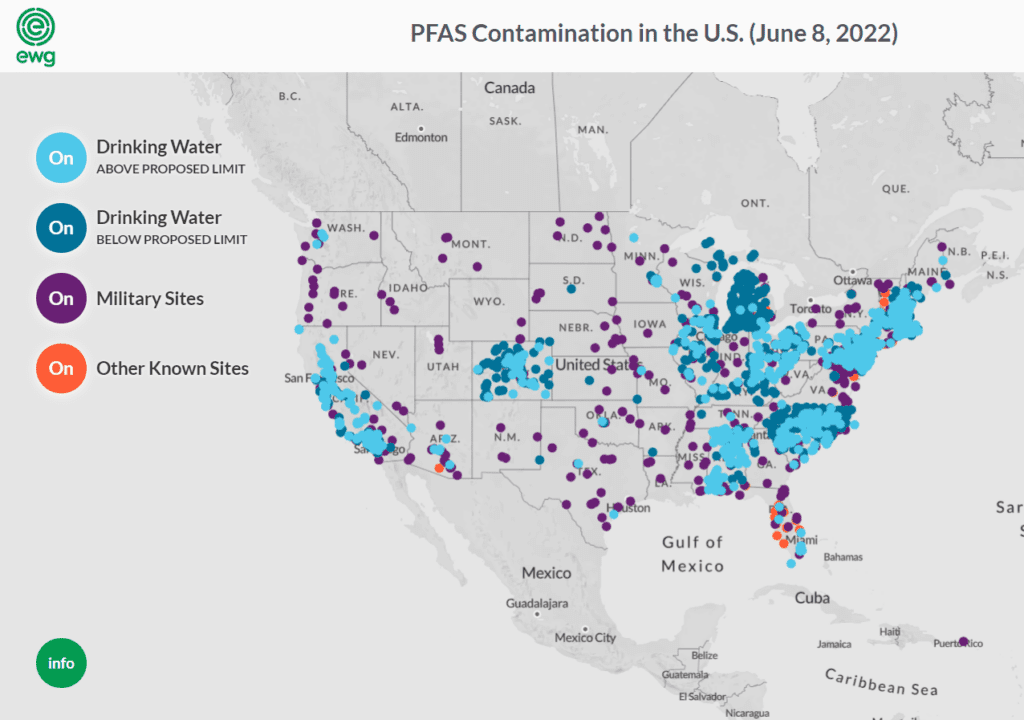How we can do the impossible, all with the power of nature
Our soils are contaminated, and we don’t even see it. What do we have? ‘Forever’ chemicals, oil spills, heavy metals, pesticides, and so on. What are ‘forever’ chemicals? Per-and polyfluoroalkyl substances (PFAS) or ‘forever’ chemicals are a group of chemicals used to make fluoropolymer coatings and products that resist heat, oil, stains, grease, and water. Fluoropolymer coatings can be in a variety of products. PFAS enter our food chain and are toxic for our health. Researchers have been trying to come up with solutions to clean soils using the power of nature for years but they were too expensive to pursue. We finally have a breakthrough that allows us to clean soils, reduce CO2, and decarbonize our cities, all thanks to the power of nature.
‘Forever’ chemical pollution
Since ‘forever’ chemicals make consumer products non-stick and water resistant, they can be found in plenty among our everyday items. However, the production of these products causes pollution that spreads really far. This pollution has been found in the Arctic ice and in the blood of polar bears. And in our blood too. Because of their so-called useful properties, ‘forever’ chemicals do not decompose in nature and also accumulate in our bodies. They can be destroyed only at temperatures above 1000°C. Scientists fear they will stay on for millennia to come. And if we look at the short-terms threats, they are already causing 17.5 trillion USD societal costs per year. (Societal cost of ‘forever chemicals’ about $17.5tn across global economy – report | PFAS | The Guardian)
The scale of contamination has not been fully quantified yet. There are some maps for Europe and the US; however, more research is required to have this information on a global scale.


The massive contamination of Europe by PFAS ‘forever chemicals’ (lemonde.fr)
PFAS Contamination Crisis: New Data Show 2,858 Sites in 50 States (ewg.org)
From pollution to solution
Cleaning soils from ‘forever’ chemicals remains challenging. The ground at hotspots can be excavated and moved somewhere else. But mid-low polluted areas cannot be cleaned this way. First of all, it is very expensive. Secondly, these areas can be very big. They include cities, farming land, and sometimes whole regions. We cannot just remove them.
But there is incredibly promising research taking place in Belgium right now. The first pilot was carried out in 2022 by Fytolutions, and the University of Hasselt. It included planting industrial hemp on mid-low contaminated plots. This year, the research has extended to new locations, both industrial and farming grounds, by C-Biotech. What has this research shown so far?
- Industrial hemp extracts ‘forever’ chemicals from the soil and transfers it to the leaves of the plant. Stems and pollen of the plants remain clean.
- Industrial hemp is very powerful at capturing CO2. It grows to 3.5 meters in 4 months and, in these 4 months, it absorbs 9-15 tonnes of CO2 per hectare. This is 2-4 times more than what a young forest absorbs in a year. Polluted leaves can be separated and destroyed at high temperatures and clean stems can be used to create circular bio-based construction materials like reinforced wood.
- Depending on the level of pollution, hemp would take 10-30 years to clean top soil in mid-low contaminated areas. Throughout this time, it would also remove CO2 and provide a business model to clean soils and restore them.
- Construction is responsible for around 40% of our emissions and 30% of waste. Industrial hemp has huge potential to help eliminate this waste and emissions through circular bio-based materials.

Industrial hemp picking up ‘forever’ chemicals from soils and transferring them to plant leaves.

Circular reinforced wood from industrial hemp, made by C-biotech. At the end-of-life, it can be fully turned into the same product.
Taking it global
Soil contamination impacts the food we eat, the air we breathe, and the water we drink. According to IPBES, over 3.2 billion people worldwide are negatively affected (Worsening Worldwide Land Degradation Now ‘Critical’, Undermining Well-Being of 3.2 Billion People ). If no action is taken, soil pollution will increasingly impact our health and economies.
CO2 emissions continue to rise and accelerate global warming with heatwaves, droughts, storms and rise in sea-levels all over the world (Climate Change: Vital Signs of the Planet (nasa.gov).
With this new research, we can tackle these problems at once. This is what the goal of +EARTH+ is. Born out of Belgium and in partnership with C-Biotech, +EARTH+ is an impact platform with a bold mission to create the largest soil and CO2 cleanup with nature. We collaborate with scientists to use the power of plants and work with cities and companies to clean and restore lands, cut emissions, and create local circular economy. Turning pollution into a positive story of action.
Elena Doms, Head of +EARTH+.
(www.earthplus.eu)

